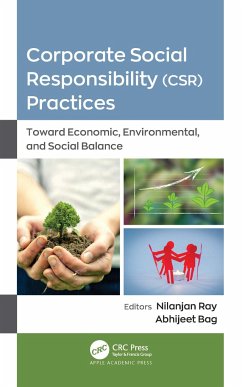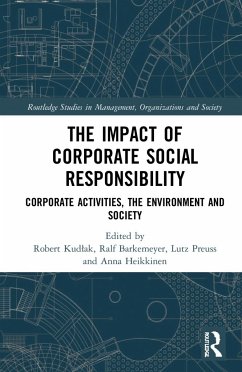
A Stakeholder Approach to Corporate Social Responsibility
Pressures, Conflicts, and Reconciliation
Herausgegeben: Lindgreen, Adam
Versandkostenfrei!
Versandfertig in 6-10 Tagen
38,99 €
inkl. MwSt.
Weitere Ausgaben:

PAYBACK Punkte
19 °P sammeln!
Corporate social responsibility has grown into a global phenomenon that encompasses businesses, consumers, governments, and civil society, and many organizations have adopted its discourse. Yet corporate social responsibility remains an uncertain and poorly defined ambition, with few absolutes. First, the issues that organizations must address can easily be interpreted to include virtually everyone and everything. Second, with their unique, often particular characteristics, different stakeholder groups tend to focus only on specific issues that they believe are the most appropriate and relevan...
Corporate social responsibility has grown into a global phenomenon that encompasses businesses, consumers, governments, and civil society, and many organizations have adopted its discourse. Yet corporate social responsibility remains an uncertain and poorly defined ambition, with few absolutes. First, the issues that organizations must address can easily be interpreted to include virtually everyone and everything. Second, with their unique, often particular characteristics, different stakeholder groups tend to focus only on specific issues that they believe are the most appropriate and relevant in organizations' corporate social responsibility programs. Thus, beliefs about what constitutes a socially responsible and sustainable organization depend on the perspective of the stakeholder. Third, in any organization, the beliefs of organizational members about their organization's social responsibilities vary according to their function and department, as well as their own managerialfields of knowledge. A Stakeholder Approach to Corporate Social Responsibility provides a comprehensive collection of cutting-edge theories and research that can lead to a more multifaceted understanding of corporate social responsibility in its various forms, the pressures and conflicts that result from these different understandings, and some potential solutions for reconciling them.













